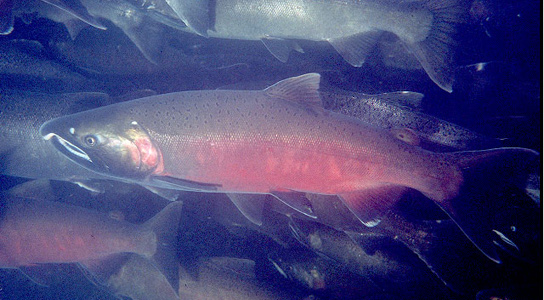
Threatened coho salmon have prompted environmental objections to dams on the Klamath River in Oregon. Credit: E. R. Keeley, USGS
US fisheries scientists are claiming that a supervisor threatened to eliminate their research division after the team had produced controversial model predictions of the survival and recovery of the threatened coho salmon (Oncorhynchus kisutch).
The threatened O. kisutch reside in the Klamath River Basin in Oregon. The Public Employees for Environmental Responsibility (PEER) filed a complaint of scientific misconduct on January 7th to the Department of Interior on behalf of the scientists.
Federal research on the Klamath Basin fish and wildlife has been caught in a debate on whether to tear down a series of hydroelectric dams on the river. Many environmentalists blame the dams for salmon die-offs and ecological decline, but not everyone agrees.
A letter alleges that Jason Phillips violated the agency’s scientific-integrity policy, which was adopted in 2011 in part of President Obama’s nationwide initiative to protect science from political interference. It states that the scientists believe Phillips intended to shut down the research group because the team’s work on salmon and other fish contradicted the plans and findings of the US Fish and Wildlife Service and the NOAA.
On 8 November, Phillips outlined plans to the union to reassign the scientists to other parts of the Klamath Basin office and gradually eliminate the research group. This isn’t the first time that there have been issues in this federal bureau. It fired its scientific integrity officer in 2011 after he questioned the accuracy of figures to be published about a dramatic rise in projected Chinook salmon numbers if the dams were removed.









Another example of the egregious influence of powerful interests over our policy makers.